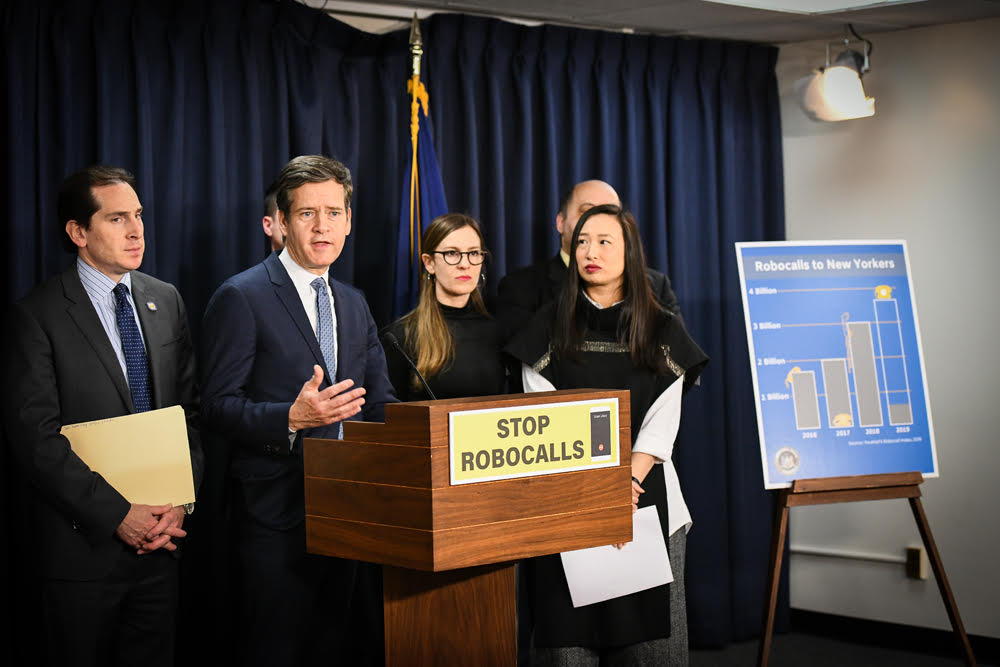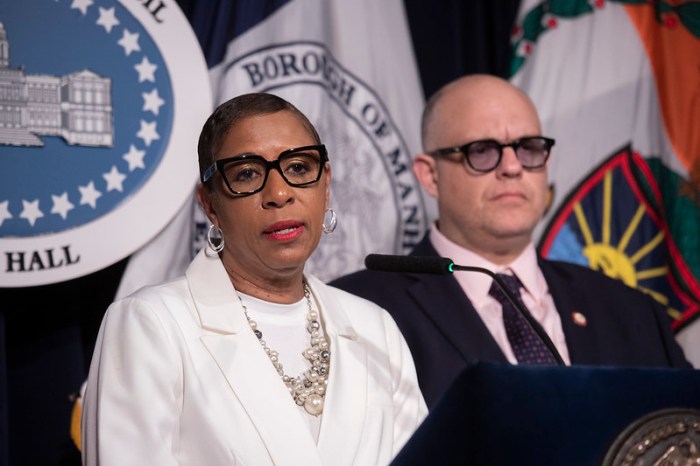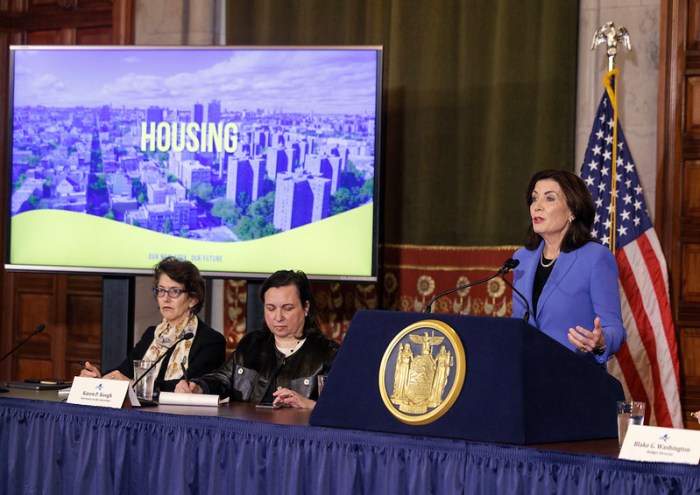BY ALEJANDRA O’CONNELL-DOMENECH | State Senator Brad Hoylman and Assemblymember Yuh-Line Niou on Tuesday introduced a bill to ban unwanted robocalls in New York State. The Robocall Prevention Act was also approved on Tuesday by the Senate Energy and Telecommunications Committee.
“These calls aren’t just annoying — they’re dangerous, and often used to defraud unsuspecting consumers, seniors and vulnerable New Yorkers,” Hoylman said. He and Niou first introduced the legislation last year.
Last year there were about 48 billion robocalls made in the United States, according to YouMail, a robocall-blocking service. And the number of “autodialer” calls is expected to increase, with some sources saying they will make up half of all calls to U.S. cell phones this year.

The Robocall Prevention Act would work to decrease the number of these automated voice-message calls by expanding the state attorney general’s power to control them.
The law would make it illegal for any person or company to make a robocall to a New York State phone number, unless for emergency purposes or with prior consent of the recipient.
The measure would also require telephone-services companies to make robocall-blocking technology available to consumers, free of charge.
New Yorkers would also have the right to sue people or companies for unwanted robocalls, and courts could apply treble damages, which would essentially triple the amount of money awarded to the plaintiff.
Under the bill, violators could be fined up to $2,000 per robocall and up to $20,000 for calls made during a continuous 72-hour period.
“New York shouldn’t have to do this,” said Ricard Berkley, from the Public Utility Law Project of New York, a supporter of the bill. According to Berkley, New York is being forced to protect its citizens because the federal government is unwilling or uninterested in doing so for U.S. citizens.
Berkely blasted the Federal Communications Commission for, in his view, willfully turning a blind eye to the bombardment of annoying, unwanted and time-sucking calls.
“I think that if you look at this FCC, the clear preference is for doing things that favor industry rather than protecting the public,” he charged.

















